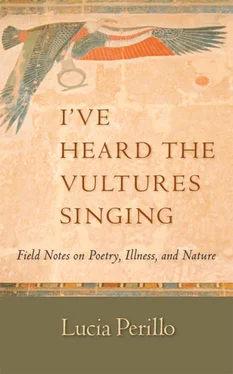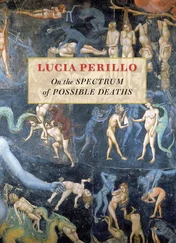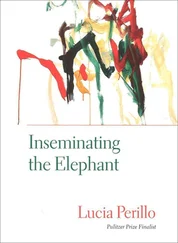When I wrote not long ago about fondling the giant purple slabs of beef, the thrill of slipping one into my purse, I realized that this writing was giving me tremendous pleasure, a childish thrill that came from conjuring my outlaw persona. It titillated me as I bent the real like a welder with a torch — had I ever stolen meat or had it been only the possessor of the baby face, the one who is now an oncologist in St. Louis? The oncologist who caused a strange woman to run up and give me an embrace, because my roommate saved her life?
In fact, I could have had all the meat I wanted, if I’d sacrificed my pride and asked my parents to send more money .
Unlike Bonnie Parker, getting something published has always filled me with shame, despite my having sought publication so avidly. This embarrassment may be congenital, my family having avoided leaving a paper trail that would cement us to any one reality. Had my grandfather come to this country by jumping ship in New York, or had he somehow made his way through Canada? And had his brother Stefan, also a sailor, committed suicide or been murdered at the docks? If I close my eyes, I can picture my mother’s looping script, but my father’s pens left the breast pocket of his suits only when he lost them. To shake my relations off my own trail, I considered using a pseudonym, like some of my friends.
Once when my parents visited me during the Christmas season, the three of us walked around Pioneer Square to look at the gleaming windows. They knew my first book of poetry was about to be published, and so they sent me into the bookstore to see if it had been shipped yet. And when I saw it standing on an end-cap, my breathing stopped and nothing in my body worked except whatever chamber of my heart it was that squirted so much blood into my face. I walked back outside into the snow (see how my memory embroiders the scene; the chance is slim that the clouds over Seattle could have actually dropped any snow) .
“ Was it there?” my parents asked .
“ Not yet,” I lied .
On this issue of whether writers should take the feelings of their loved ones into consideration when they wrote, William Faulkner counseled ruthlessness, saying that “Ode on a Grecian Urn” was worth any number of old ladies. This trade-off — family harmony versus heartfelt expression, once I invented for myself a glitzier heart — worried me a great deal when I was young. Indeed, when my mother read my first book, after she’d spread the news of its imminent arrival, she remarked dryly/angrily/wistfully/shamefully: “I wish you’d told me what it was going to be like.”
Question: What was it like? Answer: Full of much bad writing. I had too much investment in the autobiographical myth, which I thought was necessary because I lacked the inventiveness not to write about actual life, and I thought that actual life required a grand myth to be interesting — what could be interesting about a pasty-skinned girl from the suburbs? I hadn’t gotten wise to Emily Dickinson yet, a poet who derived her outlaw spark from the sly rebellion of her strange punctuation. To put the brigand into the poem itself, not the autobiography, this is the harder trick.
Luckily, my outlaw period ended early. During that same freshman year in Canada, I hitchhiked across the border with a boy who taped six capsules of speed to his arm. How glamorous his long arm seemed when he rolled down his shirtsleeve and donned the leather jacket into whose pocket he’d forgotten to put his student visa. This was a boy who occupied a beauty tier that was at least one tier above my own beauty tier, and I thought my being as daring as he was would eliminate our visual discrepancy.
What I discovered from sweating out two hours at the inspection booth was that Thrill in general had outgrown me — it had become too large to inhabit my body without wearing it out. Plus a terrible disease (a disease of the nerves! ) eventually took over as my life’s master narrative. Though we were not strip-searched (allowed, instead, to return to the routine of our Monday-morning classes), I knew my life of crime was over.
Now that I’m feeble, I have the habit of revisiting it, if only through the lies that memory tells me as I sit here. From now on, I’ll not easily be offered the opportunity to be bad. Or maybe the problem is that now I am too easily offered — forced to partake in! — the outlaw rituals of my youth. Drugs: I have many, lined up in the cabinet. Slothfulness comes easy to me, in my stony daze (800 mg gabapentin/4 times a day). My life has become not just tame, it transpires now almost without event , save for the drama of an accelerated physical decline. This physical dilapidation only makes the outlaw more cherished, seeing as she is so improbable. How could I rob a bank? Could I make my getaway in my rusted minivan? Every once in a while, I’ll read in the paper about someone mounting this kind of doomed venture, and I can’t help rooting for that old coot — it never seems to be a her — rolling away from the bank in a wheelchair while the ink-pack hidden in the money explodes.
Finally, if I may cut back to the movie, we see how a bald statement of the myth becomes the very thing that jump-starts it, which happens early on, when Warren Beatty delivers his famous line to a dirt farmer who’s gone belly up: “We rob banks.” And so they have to go ahead and do this, to align the line with a life lived in accordance to its mythic promise.
The American female poets who’ve written The Famous Lines have lived lives equal to the great singularity of the lines, as if the autobiographical myth were a rocket booster for propelling the poet into history. The poet writes: My life had stood a loaded gun and becomes the recluse who will not let the doctor examine her when she is dying — he may only watch her pass back and forth across a doorway. Or she writes: I eat men like air and turns on the oven’s gas. ( The art of losing isn’t hard to master also comes to mind, a line written by a poet impersonating a normal woman who rejected the grand autobiographical myth.)
As I sift both my brain and my Norton Anthology for such examples, I realize that we have not had enough years of female poets in this country to have a big stockpile of such lines yet. I mean the kind of lines that contain a tinge of infamy.
*This poem was made with the help of Kim Addonizio, Stephanie Brown, Denise Duhamel, Nancy Eimers, Amy Gerstler, Lisa Glatt, Lynda Hull, Dorianne Laux, Lisa Lewis, Suzanne Paola, Belle Waring, and Susan Yuzna. These poets share some similar subject matter though their syntax and diction, of course, vary.
I began this by asking Jim if he’d mind being included in something I was planning to write about sex.
“No one wants to read about sex,” he said.
“Everyone wants to read about sex!”
“Not about you having sex.”
Then I had to admit he had a point. Ungrammatical as his response was.
Not about me, okay, there is nothing singular about me, my contortions are conventional — except that the puppet strings of my nerves have grown corroded with scar tissue. From a subjective perspective, this feels much as it sounds: my legs feel like the antennae of a TV tuned to a channel where no signal is coming in, and the static fuzz is humming loud. They’ve also become spastic, lock-kneed at odd moments, my feet like those of Barbie, ready for the high-heeled shoe.
It is not an appealing picture. But if I am going to write about my sex life, you should get a good look, especially at the segue from my legs to waist, where my body starts getting strange. I have had a machine implanted on my belly: it delivers drugs to my spine via a tube. The tube runs under my skin, and I can’t feel it with my fingers except where it bends to enter one of the interstices of my vertebrae. The bend makes a spongy bubble in my back’s lumbar curve, and when I first discovered this rubbery spot I could not keep from poking it.
Читать дальше











![Various - Birds and Nature, Vol. 12 No. 5 [December 1902]](/books/745517/various-birds-and-nature-vol-12-no-5-december-thumb.webp)
![Various - Birds and Nature Vol. 11 No. 2 [February 1902]](/books/745533/various-birds-and-nature-vol-11-no-2-february-1-thumb.webp)